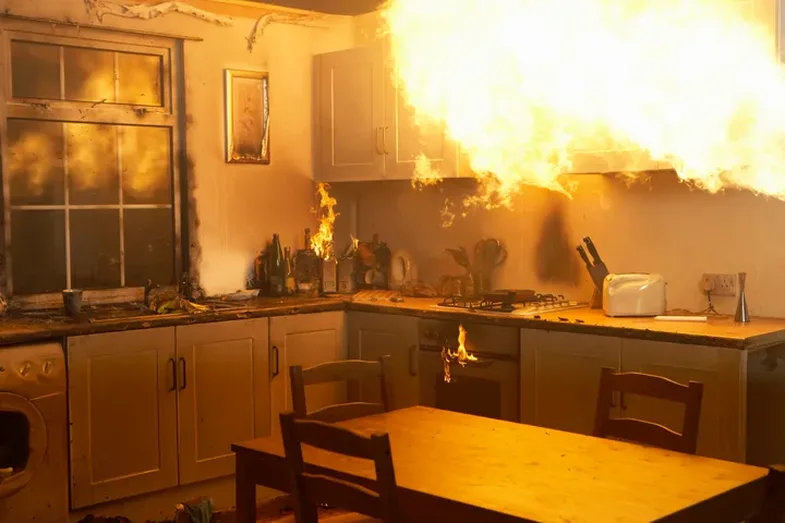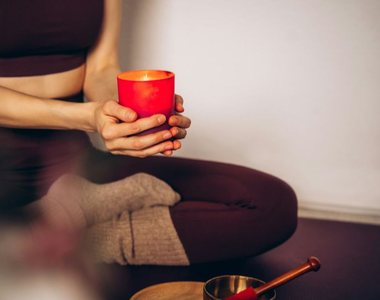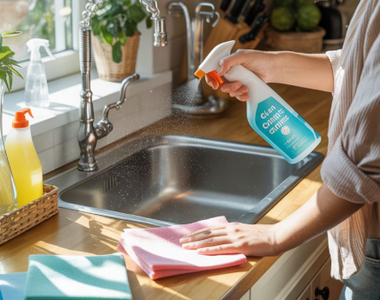
If you've ever stood in front of a pan of oil that catches fire, you know very well that it's a situation you never want to be in. And if you think that kitchen fires are rare, you're wrong.
Whether you consider yourself a careful cook or not, there's something most of us do wrong that increases the risk of a fire. Below, experts explain why these incidents happen more often, how to avoid them, and what to do if you're faced with such a situation.
At what temperature does an oil fire start?
First and foremost: Every oil has a smoke point and a flash point. The smoke point is the temperature at which the oil starts to smoke, while the flash point is the point at which it catches fire. In general, when the oil starts to smoke, flames can appear very quickly - so if you see smoke, it's time to stop right there!
For example, sunflower, sesame, corn, and olive oil have a flash point of around 210°C, while canola oil reaches up to 225°C. And although most recipes don't call for such high temperatures, a pan forgotten on the fire can quickly become a source of disaster.
The main cause of cooking fires
According to experts, the biggest problem is distraction. Most kitchen fires happen because people aren't paying full attention to the oil heating up. If you've ever spent a night cooking after a night out, you know that the risk is higher because your body and mind are tired and not focused. As expert Randy Feltis says, many times, people get distracted, using their phones or doing something else, and oils can reach dangerous temperatures after just a few minutes of being unattended.
Another situation that often goes unnoticed is overfilling the pan with oil. This can cause the oil to splash and hit the flames or open heating elements. So it is very important to use a pan that has a capacity of double the amount of oil you are using and, if necessary, cook in batches to avoid overloading.
How to measure oil temperature
A very simple way to avoid a fire is to use a kitchen thermometer to monitor the temperature of the oil. Any real chef will recommend this device, as it can help prevent the oil from overheating and ensure safe cooking. Some thermometers are specialized for deep frying and can measure temperatures up to 200°C.
If you want to make sure you're working with the right temperatures, these devices can save more than just a recipe - they can also prevent a major fire.
Sources: HuffPost





